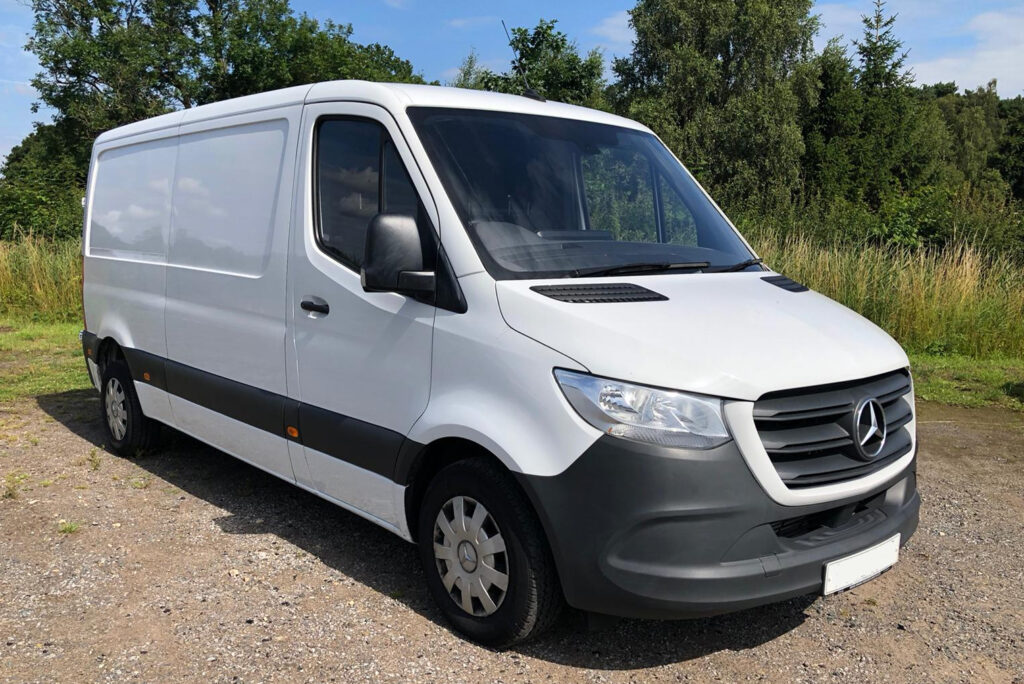Running a successful business often requires efficient transportation. Whether you’re delivering goods, offering services on-site, or just need somewhere to store all your work gear, investing in a new van can be a game-changer. However, with numerous options available, finding the right van for your business can be overwhelming. In this guide, we’ll walk you through the essential factors to consider when buying a new van and help you make an informed decision.

Here’s my tips to help you decide what you want to do..
-
Assess Your Business Needs:
Before diving into the world of vans, take a step back and evaluate your specific business requirements. Consider factors such as cargo capacity, passenger seating, fuel efficiency, and any special features you may need. If you’re regularly traveling a long way – you’d probably be better off with a petrol or diesel rather than an electric. Are you transporting fragile items that require temperature control? Will you need additional storage or customization options? Clearly defining your needs will narrow down your choices and ensure you select the right van for your business.Set a Budget:
Determining your budget is crucial when buying a new van. Consider not only the upfront cost but also the long-term expenses, including maintenance, insurance, and fuel. Decide whether you prefer purchasing or leasing, as each option has its own pros and cons. Research the financing options available to you and consider consulting with a financial advisor if needed. Having a clear budget in mind will help you make a financially sound decision.Research Van Models:
With your needs and budget in mind, it’s time to research different van models. Look for vans that align with your business requirements and have a solid reputation for reliability. Read reviews, compare specifications, and pay attention to factors such as cargo space, payload capacity, safety features, and technology options. Don’t forget to consider the van’s resale value, as it can affect your long-term costs.Choose the Right Size and Configuration:
Vans come in various sizes and configurations, ranging from compact vans to full-size cargo vans. Determine the ideal size based on the nature of your business and the amount of cargo or passengers you’ll be carrying. Consider factors such as manoeuverability, parking space, and loading/unloading ease. Additionally, explore different interior configurations such as shelving, partitions, and seating options that can optimize your business operations.Test Drive and Inspect:
Once you’ve narrowed down your options, it’s time to test drive and take a closer look at the vans you’ve shortlisted. Schedule visits to local dealerships and get behind the wheel to evaluate the vehicle’s comfort, handling, and visibility. During the test drive, pay attention to braking, acceleration, and overall driving experience. Check you’ll be comfortable in the driving seat – this could be your new office.Consider Maintenance and Service:
Keeping your business van in top shape is essential for seamless operations. Research the maintenance costs, warranty coverage, and availability of service centers for the van models you’re considering. Check if there are local mechanics or dealerships specializing in the specific brand you’re interested in. Reliable after-sales support can save you time, money, and headaches down the road.Compare Prices and Negotiate:
Once you’ve found your ideal van, it’s time to compare prices from different dealerships. Request quotes, paying attention to any additional fees or charges. Don’t be afraid to negotiate for a better deal or explore different financing options. Often a specialist van finance provider like Coates Finance may be able to get you a better deal than the dealer.- Consider Hire Purchase for Affordability:
If you’re looking to make a newer van more affordable, considering the option of Hire Purchase can be a smart move. Hire Purchase is a financing arrangement where you pay for the van in fixed monthly installments over a predetermined period. It allows you to spread the cost of the van over time, making it more manageable for your business cash flow.
One of the main advantages of Hire Purchase is that you don’t need to make a large upfront payment. Instead, you can secure the van by paying a deposit, usually a percentage of the van’s value. This means you can acquire a newer van without depleting your business capital, leaving more funds available for other operational expenses.
With Hire Purchase, you’ll repay the remaining balance of the van, including any interest, through regular installments. The repayment term can vary, typically ranging from 12 to 60 months, depending on your agreement with the lender. It’s important to consider your financial situation and choose a repayment term that suits your business’s cash flow capabilities.
Furthermore, since the van serves as collateral for the loan, you may not need to provide additional security or assets (subject to your individual circumstances). This can simplify the application process and make it more accessible for businesses that may not have substantial assets to offer as security.
Conclusion:
Buying a new van for your business through Hire Purchase can be a viable option to make a newer van more affordable. By spreading the cost of the van over a fixed period, you can acquire a vehicle without making a large upfront payment. Take the time to research different lenders, compare interest rates, and negotiate favourable terms that align with your business’s financial capabilities. With Hire Purchase, you can drive a newer van while managing your cash flow effectively.
